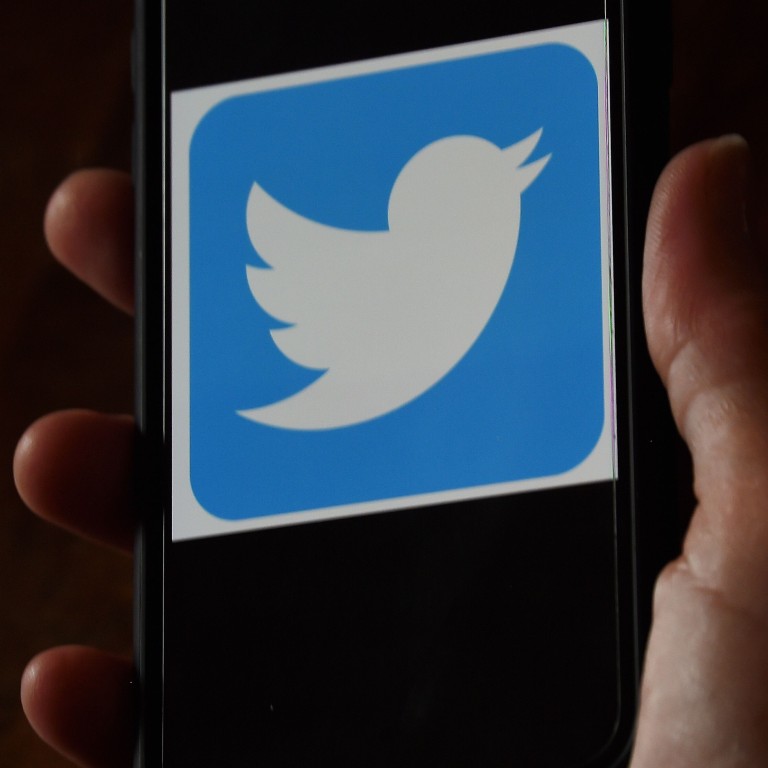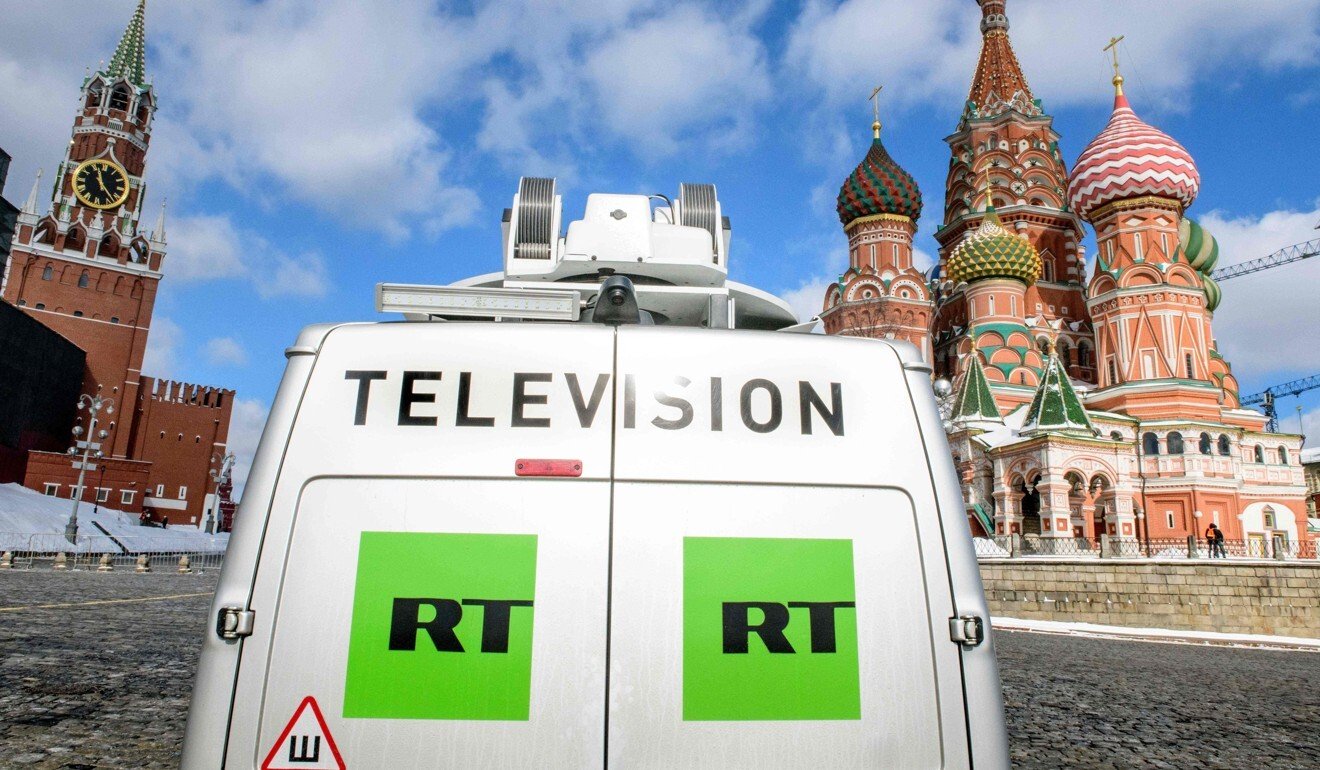
Twitter begins labelling ‘state-affiliated media’, including Chinese outlets
- The accounts of China Daily and Global Times are among the first to get new tag, along with Russia Today
- Labels are for outlets linked to governments of countries on UN Security Council, where state ‘exercises control over editorial content’, social media firm says
Twitter launched a crackdown on Chinese and Russian government-linked news outlets on Thursday, labelling sites including People’s Daily, China Daily and Global Times as “state-affiliated media” and preventing them from being recommended to users or otherwise amplified on the social media platform.
The new categorisation covers accounts in the United States, Britain, France, China and Russia – the five permanent United Nations Security Council members – but will in effect only apply to outlets from China and Russia, given the high degree of control that government bodies in those countries exert on editorial decisions through funding and other forms of pressure.
Jessica Herrera-Flanigan, a public policy executive at Twitter, said the goal of the initiative was to “further protect the public conversation in an election year”.
The new labels, which appear on both the homepages of targeted accounts and above every tweet posted by them, have also been added to editors and prominent reporters at the outlets.

Those include Global Times’ editor-in-chief, Hu Xijin, who uses the platform to share commentary on or insights into Beijing’s official position on international affairs, frequently regarding relations with Washington.
China Daily’s EU bureau chief, Chen Weihua, who was not labelled, accused Twitter of bias against China and Russia “to fit the McCarthyist narrative that is prevailing in Washington” and criticised the company for not applying the label to the US taxpayer-funded Voice of America.
Under the new rules, publicly funded outlets that have firewalls between financial revenue and editorial decisions will not be targeted, Twitter said, pointing to the British Broadcasting Corporation (BBC) and National Public Radio (NPR) as examples.
Alongside the media labelling, which was also applied to Kremlin-controlled Russia Today, Twitter rolled out labelling for prominent government officials from all five countries. US President Donald Trump’s official Twitter account was among them, while his “personal” account (@realDonaldTrump), which he has used far more frequently while in office, was not.
Facebook and Twitter block Trump video over ‘immune’ kids claim
Twitter also labelled as “Chinese government account[s]” numerous Beijing officials, such as foreign ministry spokesman Zhao Lijian, one of the few Chinese citizens permitted to use the domestically blocked website.
“China blocks access to Twitter for regular users,” Twitter said in its statement announcing the move. “We believe that people benefit from additional context when interacting with Chinese government and state-affiliated accounts.”
Twitter also said it planned to expand the number of countries subject to the new rules.
As of Thursday, the company had placed the state-affiliated media label on a large number of Chinese news accounts, including those not considered government mouthpiece outlets and at least one – Caixin Global – that is not government funded.

Caixin is a financial news magazine known for pushing the political envelope in China, a reputation that grew further this year with a series of investigative reports into the government’s handling of the coronavirus outbreak.
A Twitter representative declined to comment on the decision to include Caixin, instead referring to a company statement defined state-affiliated media as “outlets where the state exercises control over editorial content through financial resources, direct or indirect political pressures, and/or control over production and distribution”.
The company representative also declined to comment on whether this definition would effectively cover all outlets in China, given the high degree of control that internet regulators exert over online publications.
As of Thursday, Twitter had not labelled SHINE, the digital version of the government-funded Shanghai Daily newspaper, as state-affiliated. Twitter did not respond to a request to comment on that decision.
Under the rules, accounts that are labelled as state-affiliated media and their tweets will no longer be amplified through Twitter’s recommendation systems, including its home timeline, notifications and search functions, the company said.
The measures by the San Francisco-based company come atop similar moves last year to prevent accounts of state-affiliated media and their journalists from accessing Twitter’s paid promotion service, which pushes content to users regardless of whether they follow those accounts.
And in June, the company took down 23,750 accounts it charged were part of a Beijing-coordinated campaign to sow disinformation and promote government narratives on the platform.
Also on Thursday, Google pulled more than 2,500 accounts from YouTube as part of what the Alphabet-owned company described as an “ongoing investigation into coordinated influence operations linked to China”.

